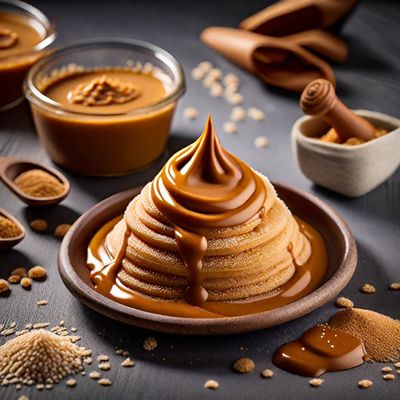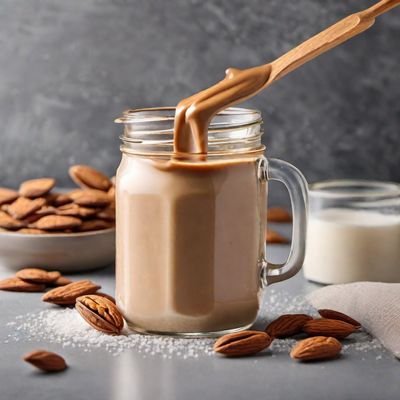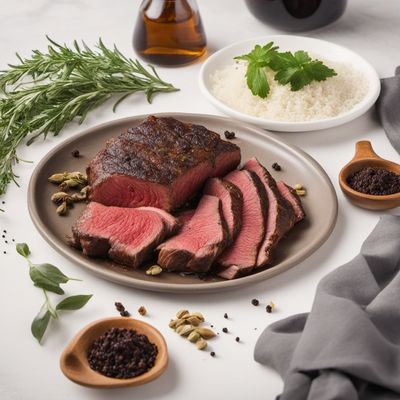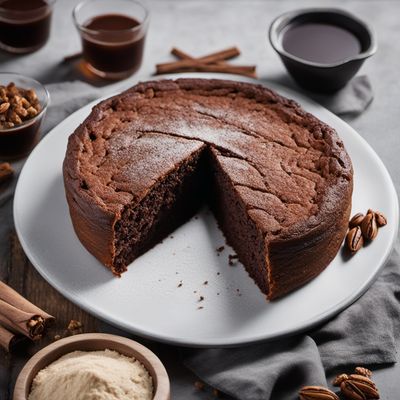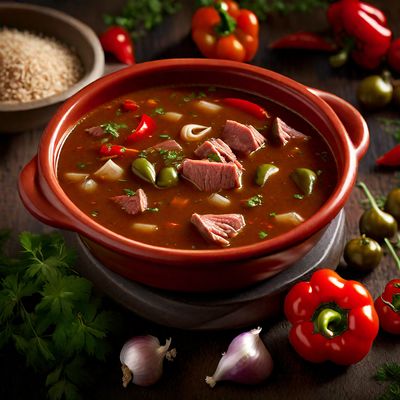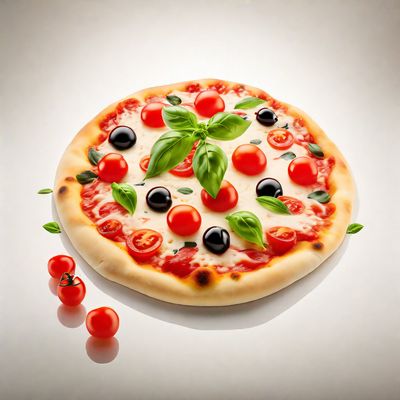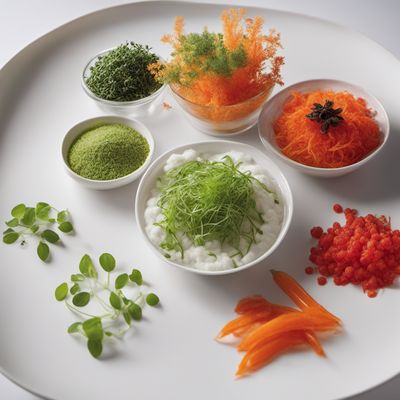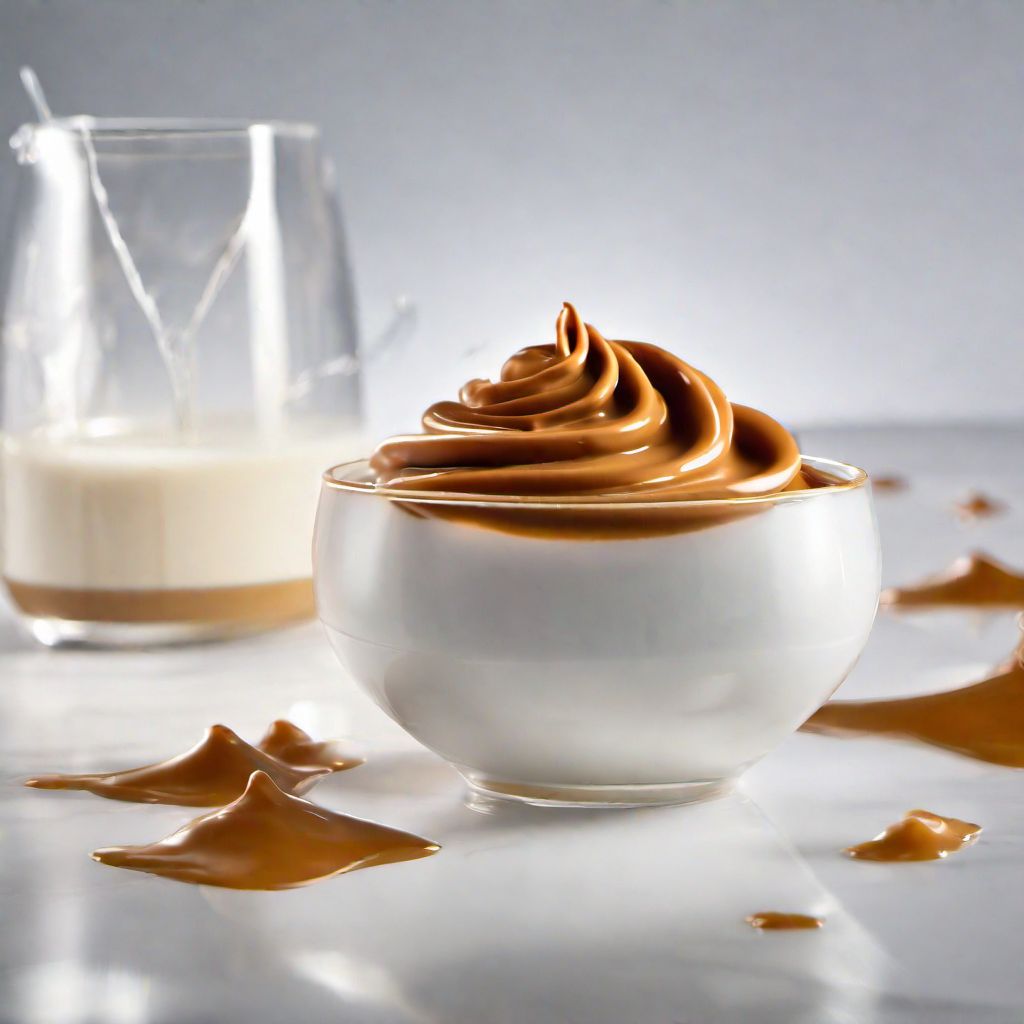
Recipe
Dulce de Leche Molecular Gastronomy
The Sweet Transformation: Molecular Dulce de Leche
4.6 out of 5
In the realm of molecular gastronomy, we embark on a journey to reimagine the beloved Argentinian classic, dulce de leche. Through the art of scientific cooking techniques, we will create a unique and captivating version of this caramel delight, pushing the boundaries of taste and texture.
Metadata
Preparation time
30 minutes
Cooking time
10 minutes
Total time
40 minutes
Yields
4 servings
Preparation difficulty
Medium
Suitable for
Vegetarian, Gluten-free, Nut-free, Soy-free, Egg-free
Allergens
Milk
Not suitable for
Vegan, Dairy-free, Paleo, Keto, Low-carb
Ingredients
While the traditional dulce de leche is prepared by slowly simmering condensed milk, our molecular gastronomy adaptation will involve innovative methods to transform its consistency and presentation. By utilizing modern culinary techniques, we will create a visually stunning and texturally intriguing rendition of this iconic dessert. We alse have the original recipe for Dulce de leche, so you can check it out.
-
400g (14 oz) condensed milk 400g (14 oz) condensed milk
-
2g (0.07 oz) sodium alginate 2g (0.07 oz) sodium alginate
-
500ml (2 cups) calcium lactate solution 500ml (2 cups) calcium lactate solution
-
100g (3.5 oz) sugar 100g (3.5 oz) sugar
-
100g (3.5 oz) glucose syrup 100g (3.5 oz) glucose syrup
-
200ml (3/4 cup) water 200ml (3/4 cup) water
-
5g (0.18 oz) edible gold flakes (optional) 5g (0.18 oz) edible gold flakes (optional)
Nutrition
- Calories (kcal / KJ): 300 kcal / 1255 KJ
- Fat (total, saturated): 10g, 6g
- Carbohydrates (total, sugars): 50g, 45g
- Protein: 5g
- Fiber: 0g
- Salt: 0.1g
Preparation
-
1.In a saucepan, combine the condensed milk, sugar, and glucose syrup. Cook over medium heat, stirring constantly, until the mixture thickens and turns golden brown. Remove from heat and let it cool slightly.
-
2.In a separate bowl, dissolve the sodium alginate in water. Blend the cooled dulce de leche mixture with the sodium alginate solution using an immersion blender until well combined.
-
3.Fill a syringe or dropper with the dulce de leche mixture. Drop small droplets into the calcium lactate solution, allowing them to set for 2 minutes.
-
4.Gently remove the droplets from the calcium lactate solution and rinse them in cold water to remove any excess calcium.
-
5.Optional: Sprinkle the dulce de leche droplets with edible gold flakes for an elegant touch.
-
6.Serve the molecular dulce de leche on a plate or in a glass, allowing the droplets to create a visually captivating presentation.
Treat your ingredients with care...
- Condensed milk — Ensure the condensed milk is thick and creamy for a rich dulce de leche.
- Sodium alginate — Dissolve the sodium alginate completely to avoid lumps in the mixture.
- Calcium lactate solution — Prepare the solution according to the package instructions for optimal results.
- Edible gold flakes — Use a small amount of gold flakes for a luxurious touch, but it is optional.
Tips & Tricks
- Experiment with different shapes and sizes of droplets to create a visually stunning presentation.
- Serve the molecular dulce de leche with a contrasting element like a crunchy biscuit or a tangy fruit compote.
- Adjust the cooking time to achieve your desired consistency of the dulce de leche.
- Store any leftover dulce de leche droplets in an airtight container in the refrigerator for up to 3 days.
- Have fun and embrace the creativity that molecular gastronomy offers!
Serving advice
Serve the molecular dulce de leche as a standalone dessert or as a delightful accompaniment to other sweet treats. Its unique texture and captivating appearance will surely impress your guests.
Presentation advice
Arrange the dulce de leche droplets on a pristine white plate or in a transparent glass to showcase their mesmerizing appearance. Garnish with a sprinkle of edible gold flakes for an extra touch of elegance.
More recipes...
For Dulce de leche » Browse all
For Argentinian cuisine » Browse all
For Molecular gastronomy » Browse all
More Argentinian cuisine dishes » Browse all

Colita de cuadril
Sirloin tail
Colita de cuadril is a popular cut of beef in Argentina. It is known for its tenderness and rich flavor.
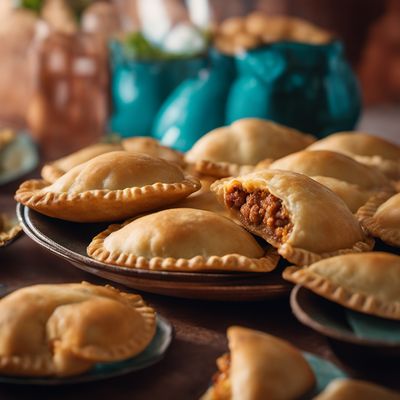
Empanadas Tucumanas
Empanadas Tucumanas are a type of empanada that originated in the Tucumán province of Argentina. They are typically made with a filling of ground...

Panqueques verdes
Green Pancakes
Panqueques verdes, also known as green pancakes, are a popular dish in South America. They are made with spinach and other green vegetables,...
